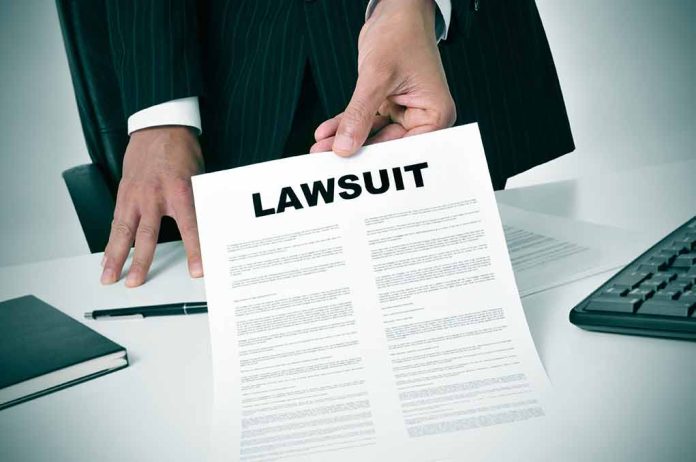
The ACLU’s latest lawsuit challenges the Trump administration’s application of the Alien Enemies Act to Venezuelan nationals linked to terrorism claims.
Key Takeaways
- The ACLU filed a lawsuit challenging deportations under the Alien Enemies Act.
- The Supreme Court decision allows these deportations but provides a chance for legal challenge.
- The Act is being used beyond its original wartime purpose to target suspected terrorists.
- The case highlights ongoing legal debates on the scope and application of immigration laws.
ACLU Files Lawsuit Following Supreme Court Ruling
The American Civil Liberties Union (ACLU), along with the New York Civil Liberties Union and The Legal Aid Society, has filed an emergency lawsuit in a Nashville federal court. The action aims to stop deportations under the Alien Enemies Act, which the Trump administration has revived following a Supreme Court ruling. Allegations pertain to two Venezuelan nationals accused of affiliations with the Tren de Aragua terrorist organization.
The lawsuit argues that the Act, a relic from 1798, is now being applied to bypass immigration law in non-wartime contexts. President Trump’s administration claims these individuals pose a threat due to their gang ties. However, the ACLU contends that using this law in such a manner is a misinterpretation of the statutory purpose, originally intended for wartime alien enemies only.
Supreme Court’s Decision and Its Implications
The U.S. Supreme Court recently ruled in favor of the Trump administration’s use of the Alien Enemies Act. This decision allows deportations but mandates that those targeted must receive meaningful notice and the opportunity to challenge their removal. Legal challenges are required to be filed in the districts where detainees are held, which are mainly located in Texas.
While the administration celebrates this ruling as a victory, the ACLU is determined to press on, emphasizing the potential human rights implications and seeking a class action status. A class action would expand protections, preventing possibly unfounded deportations based on tenuous terrorism links without fair judicial hearings.
In March 2025, President Donald Trump, back in office, launched an aggressive deportation campaign targeting illegal immigrants. One key move was invoking the Alien Enemies Act of 1798 on March 14, 2025, to deport alleged Venezuelan gang members of Tren de Aragua without standard… pic.twitter.com/hi9REgdNNf
— Just Stuff™ (@just_stuff_tm) April 1, 2025
The Broader Debate: Security vs. Rights
The political landscape views the Supreme Court’s decision as a balancing act between ensuring national security and upholding individual rights. The Trump administration’s policy targets Venezuelan nationals alleged to threaten U.S. security under the guise of terrorism affiliations. However, the ACLU argues these actions may infringe on civil liberties due to a lack of concrete evidence and proper legal process.
This ongoing legal and political discourse raises questions about the constitutionality of the Alien Enemies Act’s current application. The ACLU’s lawsuit will test the boundaries of executive powers in immigration enforcement against the foundational principles of due process and justice.
Sources:
- Groups Move to Block Removals Under Alien Enemies Act | American Civil Liberties Union
- Trump touts Supreme Court deportation ruling under Alien Enemies Act as victory, but legal fight continues | PBS News
- ACLU files suit to block Alien Enemies Act deportations
- ACLU sues to prevent Trump admin from deporting alien enemies in wake of SCOTUS decision | Blaze Media









